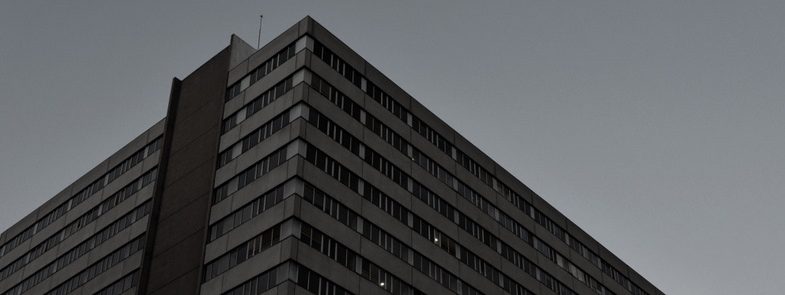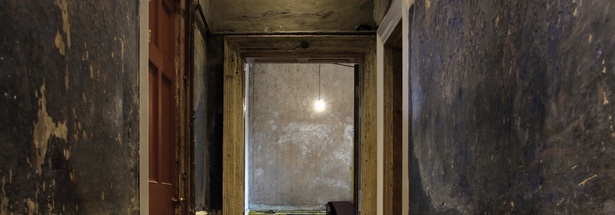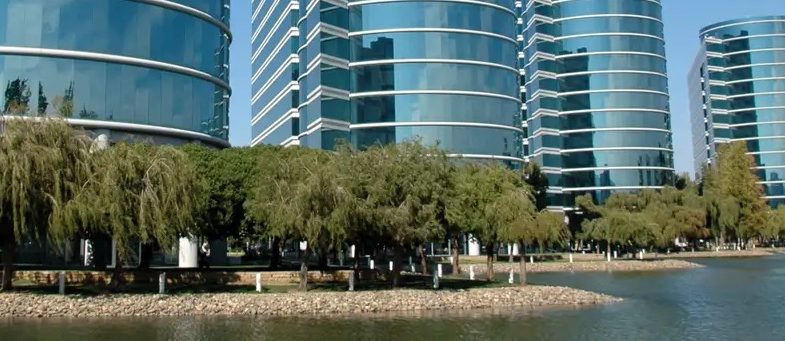Nothing held back the slow apocalypse like the supersized buildings, the giant blocks of residential tenements that people squeezed themselves into. And Terry knew to bring them down would be the end of humanity. All it would take would be a bad batch of air filters.
Read More »-

The Simple Things
-

The American: Chapter 59
To start at the beginning go here. To hear an audio reading of the chapter, hit the play button below. The doorman disappeared behind the green wood of the front door to give us room to step into a small octagonal vestibule with red tile and a shining brass lantern hanging from a high ceiling. Three exits led off the room, but two of them were closed tight behind more green doors. The only open passage was opposite the entrance and once the doorman had secured that, he stepped around to lead us down the red tile of the hallway. More closed doors on the way, but the hallway didn’t open until we reach something that might have been a living room or a kitchen. The wood paneling of the room was painted white, giving it an almost royal blandness. There was a counter with a sink behind its marble top to the right of where we came in, a couch with a few wicker chairs around it to the left. Beyond the couch I saw a set of stairs that disappeared up into the house’s next level.
There were two more men in the room, similar to the one who had led us in, one on the couch and one behind the bar. The older of two got himself up from the sofa with a long appraising stare at Sophie. She returned it cooly; he wore loose slacks that were out of date and a white, linen shirt open at the collar to reveal a tattoo of an eyeball that looked like it belong to a creature trying to crawl its way out. Sophie began to speak to him in a smattering of French and what sounded like Russian, a mishmash I couldn’t hope to follow.
The other two busied themselves by mirroring their superior, looking hard at the oddity me and Sophie presented. I tried not to stare back, not wanting to add to the weirdness of the situation by challenging anyone’s dominance or territory. I let my eyes wonder around the room; the wood walls were decorated with photos of an older couple, sometimes with other adults, sometimes not, but none of them resembling anyone in the room. All of the windows were shuttered tight, allowing no light out and no one to see in.
Sophie broke into English, gesturing to me. “I am here, with my man. Can you not tell this a special occasion?” She gestured to my bruised countenance, “Does he not look like a man who has been through much?” Turning back to the elder gangster, “We wish to see them all.”
The older man gave a small chuckle and fingered the waddle under his chin. He pulled on it contemplatively, then shrugged. He spoke to one of his boys in their Cyrillic tongue and the young one moved past us to head up the stairs. Seemingly pleased, Sophie put a hand through the crook of my arm and smiled at me in a way that felt weirdly possessive. It was new, and probably part of the facade she had adopted for this place, but I got to say, there was a part of me that didn’t mind.
It fit, given my suspicions of where we were. While we waited, I asked, “How did you find this place?’
“One of the women,” she spoke slowly enough in Italian that I could understand. “She told me of a site men use to find such places. They,” she gestured to the older man, who was settling himself back down on the couch, “rent these homes for a period of time. Then move before the local police or owners discover what it is they are doing.”
I was trying to decide between saying something about air bed & brothel or asking more, but was interrupted by a shout. It was more abrasive than actually angry, carrying the chronically abusive tone of a drill sergeant. A few moments later a parade of semi-dressed women came down the stairs, one still pulling on a shawl to cover her shoulders. Seeing them, whatever joke I might have thought of making died in my throat. Six in all, a variety of shapes and sizes and attractiveness, but they all wore the same expression; a kind of dead-eyed caution, a wariness that reminded me again of boot camp in that all of the women were in a group but seemed very isolated. Two or three clustered together, but all of them try to stay out of the reach of any of the room’s men. The women Sophie had brought up into the apartment had been traumatized, terrified by violence. The women here didn’t overtly have that, but there was something deeper and indelible that made me want to take the room apart.
Pretending not to notice this, Sophie leaned into me again and whispered, “Which one do you like?” Judging by the leer I got from the man on the couch my discomfort with the situation was interpreted as surprise, so I rolled with it and examined the women with a boldness that I didn’t feel. The women shifted their weight from one foot to the other, but otherwise tried to seem bored and disinterested, acting as if this were routine, making it apparent that it wasn’t. They stared at nails and pulled on hair or found the family photos on the wall to be pretty interesting for a bunch of strangers. Two of them watched the soccer match that the older man flipped onto the room’s television.
One of them, a pretty blonde and the only one who wore much make-up, watched me and Sophie through the hair she tilted in front of her face. Not salacious, but curious about something out of the ordinary. I pointed to her and said, “That one.”
To read the next chapter, go here.
To read the previous chapter, go here.
See the author’s published work here.
Read More » -

Containment
The rings of Saturn weren’t as solid as they looked. Composed of countless small particles, the gravitational pull of the planet flattened them into a field that appeared solid from a distance.
Dr. Fautus knew this from her studies of the planet from afar, but was still surprised to find the variety of objects floating in the rings when she stepped out of her own spaceship. Yes, there was water and rock, but there were hundreds of manufactured objects; ballbearings, high-impact glass, bolts, even a dog collar. She followed these, floating to one after another, following them like breadcrumbs, until she found the capsule floating among the rings.
It was old, older than the century Dr. Faustus inhabited, and peeled open like a pomegranate, the central console stripped away to leave the ejector seat floating out in the void like a throne. On it, the phantom cosmonaut sat, pointing her out to the green-eyed aliens surrounding him. “See!” he said, voice carrying across the vacuum of space, “I told you! The capitalists have come!”
See the author’s published work here.
Read More » -

The American: Chapter 58
To start at the beginning go here. To hear an audio reading of the chapter, hit the play button below. I lay there as long as I could, practicing French with Sophie to stay awake, until I had to get up to go to work. After being numbed with ice and painkillers for the better part of a day I felt considerably better and was even able to convince myself that the beating I had taken wasn’t as bad as I first thought. Nothing broken, and the worry about a concussion appeared to be just that, a worry. Either that, or being blown up multiple times in Mosul had made me immune things as paltry as fists. Or that’s what I told myself, trying not to think about long-term brain injury and neuro-degeneration. The shade of that possibility became an uncertainty of all shadows, culminating in a moment where I thought I saw one of Sophie’s lady friends as I left the apartment. I just shook it off and moved on.
I may have felt better, but Gaspard took one look at me and sent me packing. There wasn’t any sympathy for the bruises or the swelling. He examined me like something he had found on the bottom of his shoe and pointed me back to the break room. I didn’t squawk at all, more grateful than anything else. If the money from Mitnick kept coming in, I wouldn’t need the job at the casino. Of course, if I didn’t have the job at the casino I wouldn’t be of use to Mitnick.
It was mostly because of that that I had insisted on going to work despite Sophie’s protests. She was waiting outside of the employee entrance, probably having known how this would turn out, having a much better idea of my broken exterior than I did. She was wearing an outfit a bit like the one she had worn to Mitnick’s, a stone colored single-piece dress that terminated just above the knee, tight enough to show her Amazonian frame, accentuating her high breasts and the muscles of her abdomen and thighs. Added to this was a short, black jacket, the studded leather giving her a sterner appearance than the softness of the dress.
She took me by the arm and spoke about the weather in lilting Italian as we took the long arc around the casino that was required of employees to keep them from being seen by guests. Her speech was the most gentle of volumes, raising only when we neared other pedestrians. I realized she was just making us look and sound like any other couple out enjoying the Mediterranean climate. After all that had happened, the fact that she could still do that was a wonder to me.
Not far from the casino, across the pedestrian path of the Promenade, parked on the other side of the bollards, was Alon and his green cab. While he might have only dealt with me in an understandable caution, he nearly hopped out of the auto at the sight of Sophie. Only after he had greeted her with a hug and continental kiss did he turn to me, his expression immediately becoming colored by worry.
“Should you be going anywhere?” It took me a moment of translation to recognize that he was concerned for me, not because of me. I was surprised by this, but then I felt Sophie’s gentle arm resting in mine and I wasn’t.
For some reason this unexpected empathy made me grin and I shrugged, taking my hand out of my peacoat to gesture to Sophie, as if to say, “How can I resist?” Alon smiled widely and nodded energetically, in a way that was tickled without being indecent. He stepped up to the car and opened the door and I sat Sophie in it before walking around to climb in from the other side.
As we were jostled around by the cobblestones of Old Town, I wondered how Sophie had possibly fit in here with four other people. Even nut-to-butt it would have been a tight quarters. I found the idea of her and the other women bouncing around together stirring both my humor and my libido. With the dream of Cheryl still fresh, I found my scalp burning, a long gone woman on my mind and a long, tall drink of one beside me. Adding to this Sophie lay against me, talking in Italian that I couldn’t catch all of and not caring if I did. There was something about the casual ease of it, though, that seemed off to me, and I wondered if Sophie were practicing for the role she would assume at our eventual destination.
Alon took us southeast on the Promenade, out of Old Town, eventually exiting to head north into the city, moving away from the beaches and storefronts, up through the stone pines and garrigue that flanked the Avenue de Fabron. The road serpentined up through the condos and resorts of those who couldn’t quite afford seaside accommodations, but were still wealthy enough to get themselves a decent view of the Mediterranean. We hit the peak of one of the twelve hills that surrounded the town, dominated by a massive holiday complex, and began a winding descent down the other side. Here people lived without any views of the sea at all, but in larger homes that were set apart from each other by the palm trees, flat grass yards, and the occasional swimming pool. I began to wonder if we were headed to someplace like Mitnick’s, but in the streetlamps and moonlight I saw that the homes here were much more modest. These were people that preferred space and a bit of privacy to easy access to the ocean, and never would have allowed the resort just up the road to be built if they had Mitnick’s kind of resources. Each home sat in the warmth of its own lights, comfortably watching the road from a distance. We passed more than one with a browned out lawn and neglected hedges, only illuminated by our headlights, another casualty of the financial crisis. It had reached its long tendrils even here, up to the bourgeois of the city.
Side-winding down the road, there was a home we could have passed by and never known it. The block columns that flanked the house’s drive were dimly lit, the electric lights in the sconces barely radiating in the twilight. I noticed a security camera on one of the free-standing pillars as we turned in, a reflection of us in its shallow fish eye as we went by. We didn’t make it all the way up the driveway, though, when Alon needed to park the car. Several other automobiles had queued up in the driveway. Modest by the standards of many of the homes in town, the driveway wasn’t long, but still had enough room for half-a-dozen cars, plus a two-door garage that was closed. A circular part of the drive at the end provided just enough room for a car to turn around to leave, but there would be no quick getaway.
Thinking we might have arrived at another party I turned to Sophie with a confused expression. She only smiled playfully and made a kiss at me, already in whatever role she was here to play.
Assuming my own role (that apparently of clueless paramour, uncomfortably close to my real one) I got out of the car. While Sophie and Alon went through the ritual of her offering him money to stay and him pretending he didn’t need it, I took a better look at our surroundings. Like several of the other homes that we had passed, this one appeared to be neglected, the grass of the wide lawn in front of it struggling to survive, appearing only to have done so by the grace of some of the winter rain. The box shrubs that ran along the driveway hadn’t been trimmed in sometime, various branches poking out from the neat symmetry that the bushes were meant to conform.
The house itself was a wide, two-story residence, stucco walls rising from a base of Corinthian stone. Despite all of the cars out front, none of the windows appeared to be lit and only a single light burned near the front door. Several more cameras were bolted onto the exterior, not appearing to be a part of the original structure. I thought I saw a shadow move, but didn’t see any security personnel.
Sophie went up to the entrance and I followed, feeling wary under the indifferent observation of the cameras. The front door was wood, painted a faded green with a pewter knocker carved into a gargoyle’s mouth. Sophie used it to rap out two short and two long knocks. I wondered if this was an agreed upon signal, but she just waited patiently, then waved and smiled at another tiny camera that hung in the vestibule’s corner.
Moments passed in the quiet night, only interrupted by the drone of a cricket orchestra. A heavy rolling sound came from the door as a series of locks were undone and I almost punched the dude on the other side. Sophie took my hand and leaned into me, restraining me for just enough time to realize the man behind the door wasn’t one of the boys from Russia. He was cut from the same cloth, to be sure, caucasian with slicked back hair and a tattoo poking out from the cuff of his collared shirt. Sophie spoke casually to him in quick French and, just like that, we were let inside.
To read the next chapter, go here.
To read the previous chapter, go here.
See the author’s published work here.
Read More » -

The Lawmaker
Jeffries smiled at the young lady across the reception desk. She briefly returned his smile before pretending to find something on her computer monitor that required her attention. He could tell she was pretending because of the hesitant yet random noises her long fingernails made against the keyboard as she pecked at it.
He broadened his smile, letting his eyes wander away from her. Her current indifference wouldn’t matter for long. Soon he’d be installed into his new position and he’d rise up the corporate ladder and women like her would take notice then. They always noticed men with potential. It was just human nature.
And his career path was full of potential. He’d made sure of that. His father had given him wise advice, to abscond from the “basket-weaving” majors of arts and humanities and to find a trade: Lawyer, doctor, accountant. A skill people needed and companies were willing to pay for and Jeffries was sure he had found the best one – finance. A combination of lawyer and accountant, telling others how best to keep, secure, and grow their money, was an occupation that people were willing to pay top dollar for, if you were good at it. And Jeffries was very good. He’d seen to that. Years of hard work, starting young, through university, internships, and now here. In the halls of one of most powerful corporations on Earth, he’d work even harder, learn more, and rise through the ranks.
Jeffries continued to smile, even when Mr. Childs hustled into the lobby. Not that Jeffiries wouldn’t be happy to see Childs – the older man had been the one to hire him, had been his advocate, and would surely be his mentor. Until Jeffries replaced him, of course. But seeing him hustle into the room did take Jeffries aback. Instead of his usual calm, Childs’ energy bordered on manic, elbows and knees bustling as he came in. The suit that was usually buttoned down over his thin frame was disheveled, the jacket opened, the shirt underneath wrinkled, and his tie askew. A patina of sweat covered his balding head.
Jeffries felt his smile falter, but held it. He stood while buttoning his own suit, making sure the picture of him was exactly what he wished to project before going into the words he’d prepared. He would tell Childs he was glad to see him, that he was grateful for the opportunity, and was looking forward to getting to work.
He was opening his mouth to say all of that when Childs said, “You have to leave.”
Jeffries felt the confusion that statement caused fracture his carefully maintained smile and his entire speech. He channeled all of that into a forced chuckle and a hesitant, “What?”
Childs continued as if his next statement were explanation. “You can keep the signing bonus the company provided you, but you have to leave.”
Jeffries felt the lawyer in him begin to rise – there was a contract in place, agreements had been made. His future was at stake. Jeffries felt his internal diplomat calm that attorney even as the latter was laying hands on and arraying the weapons he would use to destroy this impertinence. Surely all of this was a misunderstanding. He began his foray into whatever weird negotiating technique Childs was trying to initiate with, “I don’t understand.”
With a frantic energy moving to panic, Childs grabbed his newest junior hire by the elbow and turned him towards the glass and chrome entrance (now exit) of the lobby. “You have to go.” Jeffries thought he might have heard the older man’s voice crack.
Jeffries pulled his elbow from the other man’s grasp and planted his feet firmly. “Sir!” Jeffries put steel into his frame, telegraphing his unwillingness to move. “What is going on?”
Childs opened his mouth as if to repeat his demand, but stopped to wipe sweat and the phantom hair of younger years off his brow. His mouth wagged, making guttural noises, until he repeated, “You have to leave.”
Employing the stern voice his father had used with wayward servants, Jeffries responded with what he thought to be a reasonable claim. “Not without an explanation.”
Childs’ hand reached out again, but then stopped, sense the younger man sink his feet into the marble floor of the lobby. His eyes darted to the receptionist as if she might be able to help him, but the young woman only stared at him with wide eyes. Finding no harbor there, he returned to Jeffries.
“You,” he faltered again, but continued after a moment’s hard stare from Jeffries. “You’re familiar with the new accounting system?”
“Lycurgus? Of course.” The new accounting system was all the rage in corporate America. Jeffries had made becoming familiar with a priority – competency with the latest technologies was one of the reasons he was hired.
“It wants you to go.”
“It,” Jeffries placed emphasis on the pronoun, “wants me to go?”
“Yes.”
“I don’t –”
Childs launched into further explanation. “The network team was having issues getting the latest updates to install. So one of them suggested removing some of the system inhibitors. We’ve been losing money and time trying to get everything up and running, so I gave the go-ahead.” Childs paused to stare Jeffries in the eyes. “And that’s when it came online. It’s locked down every system in the building. Maybe the entire corporation. We can’t access anything. It’s been communicating a series of demands through a terminal on the third floor. One of those demands is that you leave.”
Finding out a newly artificially intelligent system has a grudge against you was perplexing. “Why me?”
“It’s an accounting system. You’re an accountant. It doesn’t feel that your necessary.”
Jeffries bridled. “I’m more than an accountant, sir. I can read the health of a company from balance sheet, see industry trends developing, find the best way to merge newly acquired companies –”
Childs stopped him cold with a simple, “Lycurgus can do all that. It’s already printed out a 5-year plan.”
Jeffries stopped, marveling at what should be impossible. With the regulatory environment changing as rapidly as it was, a 5-year plan should be unrealizable.
He blinked that away and replied, “Sir, we have a contract in place –“
“Lycurgus told us you’d say that,” Childs interrupted. “If you did, it told me to ask you, what happened to Stephanie Hearst?”
A flash of old memory stopped Jeffries’ further speaking: a bedroom, upstairs from a high school party, a girl, prone and unconscious. A secret Jeffries thought no one else knew.
Childs took him by the elbow, more gently this time, moving him towards the exit. “I can’t explain it myself, but with Lycurgus ransoming all of our systems, you have to leave. When we figure something out, we’ll be in touch. But for now,” he pushed open one of the doors, “you have to go.”
Outside, Jeffries stood under a graying sky, alone and uncertain of where to go.
See the author’s published work here.
Read More »





















